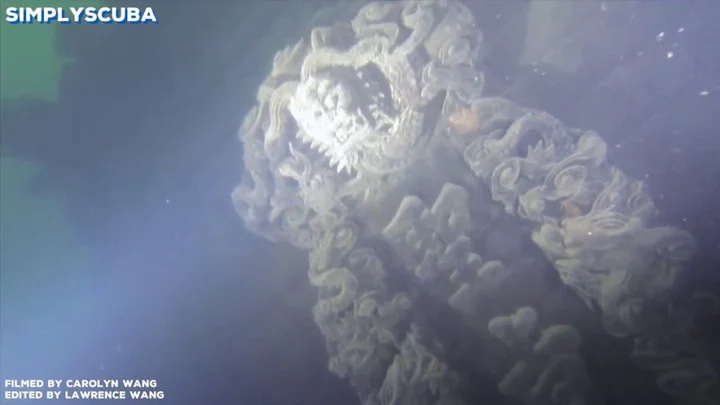Submerged beneath a manmade lake in China lies a forgotten city, dubbed by experts as “China’s Atlantis”.
The underwater city, known as the Lion City or Shi Cheng, is hidden 40 metres beneath the surface of Qiandao Lake in eastern China.
In 2001, officials discovered – or rediscovered – that the metropolis had been perfectly preserved after years underwater, and by 2017 had opened it up as a diving site for tourists.
But what is the history of the Lion City, and how did it end up underwater?
Shi Cheng is thought to have been built during the Eastern Han Dynasty between 25AD and 200AD.
It was once a political and economic hub in the eastern province of Zhejiang, with a regional seat of power located in the city.
The city walls, believed to date back to the 16th century, had five entrance gates, as opposed to the traditional four in old Chinese cities, and its wide streets contain 265 archways featuring stonework of dragons, phoenixes and (you guessed it) lions.
However, in 1959, the Chinese government decided to build a hydroelectric power plant in the area and, somewhat shockingly, decided to flood the city to do it.
This didn’t just amount to getting rid of a historical artefact. More than 300,000 people needed to be rehoused for the project, which ultimately birthed Qiandao Lake.
A surprising side effect to this was that the city remains as a time capsule to the period when it was flooded. Since the water used to submerge it did not contain anything corrosive, and was not conducive to marine life, the remains are in perfect condition.
And even though it was still functioning as a city until the mid-20th century, the Lion City has still not been completely mapped out.
Now, divers are slowly working through each building, structure, archway, road and house to eventually put together a full picture of what it would have looked like.
Until then, it will remain at least party shrouded in mystery, as China’s very own Atlantis.
How to join the indy100's free WhatsApp channel
Sign up to our free indy100 weekly newsletter
Have your say in our news democracy. Click the upvote icon at the top of the page to help raise this article through the indy100 rankings.

